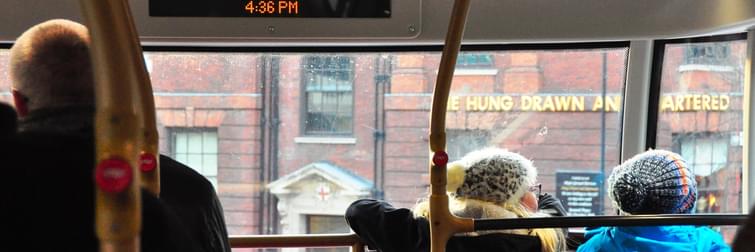
news: Responding to the Transport Committee’s Call for Evidence
Tuesday 29th September 2020
Over the past six months, the coronavirus pandemic has had a huge effect on how people use public transport, with patronage declining as a result of government guidance, fear, and temporary changes in travel behaviour. But our current situation masks much wider, deeper systemic issues. Bus use has been in decline for 70 years, with passenger journeys on local bus services reducing by 11.9% in the last decade alone.
In responding to the Transport Committee's Call for Evidence for reforming public transport after the pandemic, ITP’s Denise Faber and Tim Edwards explored their views on why public transport use will never be the same again, why we cannot continue as we have before, and why now is the time to be accountable and to act.
Their top 10 suggestions for change were:
- Introduce a new persuasive, visionary national strategy that gives clear structure and priority for a way forward where public transport is at the heart of our transport network.
- Provide increased capital and revenue funding to sustain bus services through the period of reduced patronage and beyond.
- Empower local authorities to make bold decisions on local transport networks, in partnership with bus operators, and provide them with more powers in bus service delivery - but make the process easier.
- Support an integrated approach, using each sustainable mode in its most appropriate place, avoiding duplication, and providing seamless transfer between modes through infrastructure, information, and payment. Institutionalised integration should be adopted to enable the Total Transport principle.
- Ensure public transport is intrinsic to development planning, taking a holistic approach to ensuring future development is built around sustainable travel options.
- Prioritise buses on existing or dedicated road space, making the bus journey quicker than that of the car.
- Discourage the use of the car through parking policy and car-related charges – the funding being ring-fenced for public transport.
- Tackle the image of public transport through educating children and national marketing campaigns.
- Provide the resource and tools to better analyse data to understand and plan public transport and be adaptive to changing circumstances.
- Develop technology to provide the necessary tools to enable public transport to be the obvious choice of travel.
You can read the full response by clicking here.
